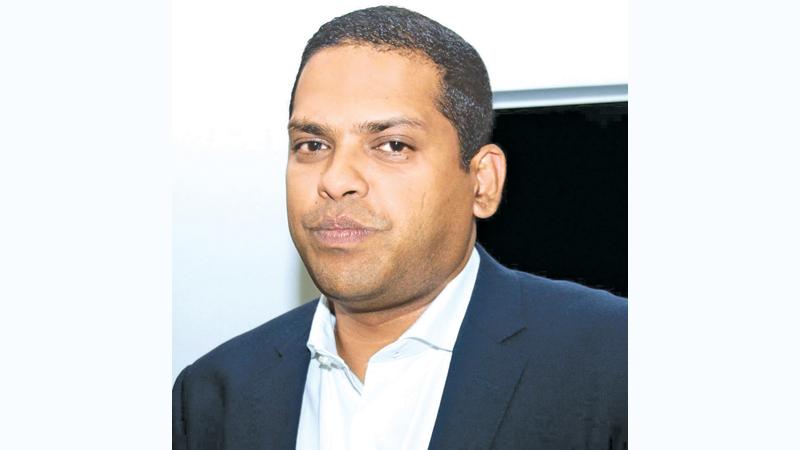
Rugby in Sri Lanka is at the crossroads with the national team aiming to gain promotion to the top tier of the Asia Rugby Championship Division One tournament and the Singer schools League set to resume after a two-month hiatus caused by the unfortunate Easter Sunday bombings.
In a wide-ranging interview with the Sunday Observer, Sports Minister Harin Fernando gave an insight on his plans and priorities to develop rugby in the country, how to bridge the gulf between school and club players, whether Sri Lanka should have a professional Sevens squad, avenues of funding for the sport and the significance of building a new rugby culture by staging matches under lights.
Asked what his priorities would be for rugby, the minister said: “The first priority we have identified is how do we retain more school players to keep continuing rugby at least for a good five years. To do that we need a bit more funding and get structured. We also need guidance and coaching from all possible avenues.”
Indeed many talented schoolboy players are lost in the system because of the lack of opportunities, according to rugby officials. Minister Fernando attributed this to changing priorities of the new generation and because rugby is a contact sport.
“Most of the younger generation now concentrate on education when they finish rugby. Also to sustain and maintain themselves, it’s quite expensive because of the injuries. We are trying to look at an insurance scheme for the national pool who will become semi professional. We need to have a structure where we can look after them in the long term,” said the Minister.
He backs the idea of the national Sevens team going professional but not at the expense of the traditional game of fifteen players.
“They (Sri Lanka Rugby) are looking at Sevens rugby in which Sri Lanka has much more potential because the talent is good, pace is there, skills are quite better.
But I would like to see Sri Lanka making an impact in XVs rugby and to be among the top three sides in Asia,” said the Minister, a former rugby player at St. Joseph’s College.
He is acutely aware that funding is key to sustainability of sports in the country. “Even the Sports Ministry needs to find funding or different resources or sponsors to keep going and that’s what we have been discussing in our symposium with the National Sports Council to see how we identify certain sports and where do you want to reach. I believe if we can build on those policies, that will benefit for the future and it will be a good start,” he said suggesting structural changes in the running of rugby.
Asked how the Sports Ministry can support Sri Lanka Rugby (SLR) by way of funds, the minister said: “On this trip (for the Asian tournament in Chinese Taipei) we helped them out by buying the tickets for the touring contingent. We (Sports Ministry) have 66 sports to look after.”
However, he noted funding is aligned to performance internationally like at Sri Lanka Cricket. “The two most popular sports I would say are cricket and rugby when it comes to sponsors’ interest.
The cricket board functions on their own because they get quite a substantial amount of money with the team in the world’s top 8 or 10. In rugby, we will get more benefits if we go up the ranking. We are 44th in the world (from over 100 countries). If we can move up to at least under 30, we might be able to make more strides. I think it’s not impossible. It is possible for us to reach there,” said the minister.
“It all boils down to sponsorship and we have to thank Dialog Axiata specially for the fantastic services they have given to Sri Lanka Rugby and also would never forget to mention the Forces. Without the Forces, rugby in Sri Lanka would not exist.”
Minister Fernando also contends that employing a new strategy to keep spectator interest alive could be in the form of playing rugby late in the evening under lights like in other Asian countries.
“In Kandy or in Colombo we would like to see the matches moving into the night or evening part of the night so as to get the crowds coming in after work and having a different culture.
“The crowd should enjoy the game. Everybody should have something to do in that evening. It should be a fun day, match day. We have to build that culture,” said the sporting minister.
